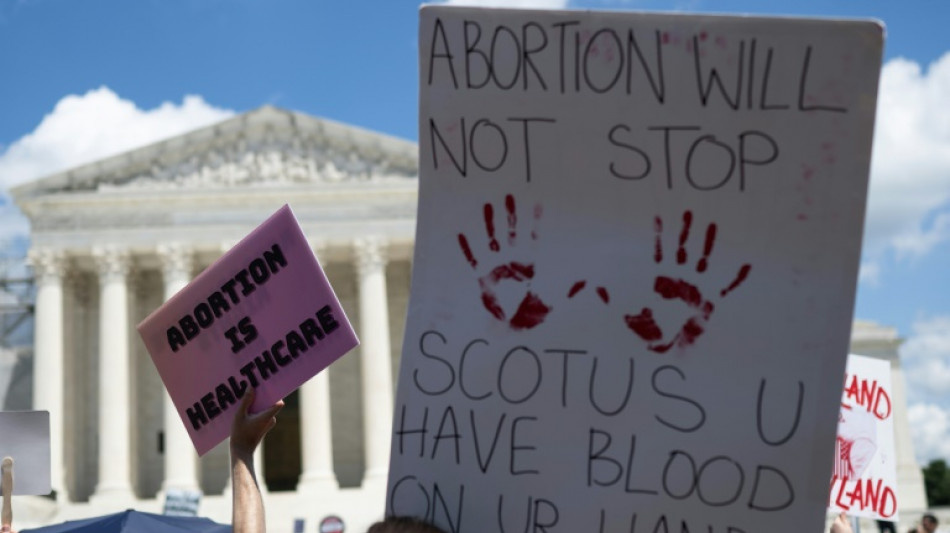
SCS
0.0200

Democratic presidential candidate Kamala Harris condemned anti-abortion laws in Georgia on Tuesday after a report in ProPublica revealed that a woman there died from delayed medical care caused by the US state's restrictive regulations.
Amber Nicole Thurman, 28, developed a rare complication from abortion pills and died during emergency surgery in August 2022, with an official state committee blaming the fatal outcome on a "preventable" lag in performing a critical procedure.
Georgia had just passed a law that made performing dilation and curettage (D&C) a felony offense with medical exceptions that doctors had warned were vague and difficult to interpret.
The US Supreme Court's 2022 decision to overturn national abortion rights unleashed a wave of bans and restrictions in 22 states, thrusting reproductive rights to the forefront of the upcoming presidential election.
"Women are bleeding out in parking lots, turned away from emergency rooms, losing their ability to ever have children again," Harris said in a statement following the report's release.
"This is exactly what we feared when Roe was struck down," she said, referring to the Supreme Court decision that had protected the national right to abortion.
ProPublica said the case marked the first abortion-related death officially deemed "preventable" and plans to publish details of a second case soon.
These official reviews are not made public, but ProPublica obtained copies of the reports.
"This young mother should be alive, raising her son, and pursuing her dream of attending nursing school," Harris said.
- 'Blood on their hands' -
Thurman, an otherwise healthy medical assistant and mother of a six-year-old boy, made the decision to terminate a twin pregnancy to preserve her newfound stability, her best friend Ricaria Baker told ProPublica.
She and her son had recently moved to a new apartment complex and she planned to enroll in nursing school. She wanted a surgical abortion, but Georgia's six-week abortion ban forced her to seek care at a clinic in North Carolina.
On the day of the procedure, the hours-long drive was hampered by traffic, and Thurman missed her 15-minute appointment window.
The clinic offered a medication abortion with mifepristone and misoprostol. While overwhelmingly safe, rare complications can occur.
Thurman's condition worsened over several days, turning into heavy bleeding and vomiting blood. She was taken to Piedmont Henry Hospital in Stockbridge.
Doctors found she had not expelled all the fetal tissue from her body and she was diagnosed with "acute severe sepsis."
But despite her rapidly deteriorating health, the hospital delayed Thurman's dilation and curettage procedure for 17 hours.
By the time they operated, the situation was so dire it required open abdominal surgery. The doctor performed the operation and found a hysterectomy was also required -- but during the procedure, Thurman's heart stopped.
Her mother recalled her last words: "Promise me you'll take care of my son."
The state committee found there was a "good chance" that an earlier procedure could have saved Thurman's life.
"Life of the mother" exceptions have widely proven inadequate, forcing women to cross state lines in desperate bids for lifesaving care.
Reproductive rights groups erupted in outrage following the report.
"Amber would be alive right now if it wasn't for Donald Trump and Brian Kemp's abortion ban," said Mini Timmara, president of Reproductive Freedom for All, referring to the former president and the governor of Georgia. "They have blood on their hands."
The Supreme Court ended federal protections for abortion access in June 2022 with the help of a super-conservative majority built under Trump's presidency.
"Survivors of rape and incest are being told they cannot make decisions about what happens next to their bodies. And now women are dying," Harris said. "These are the consequences of Donald Trump's actions."
B.Krishnan--DT